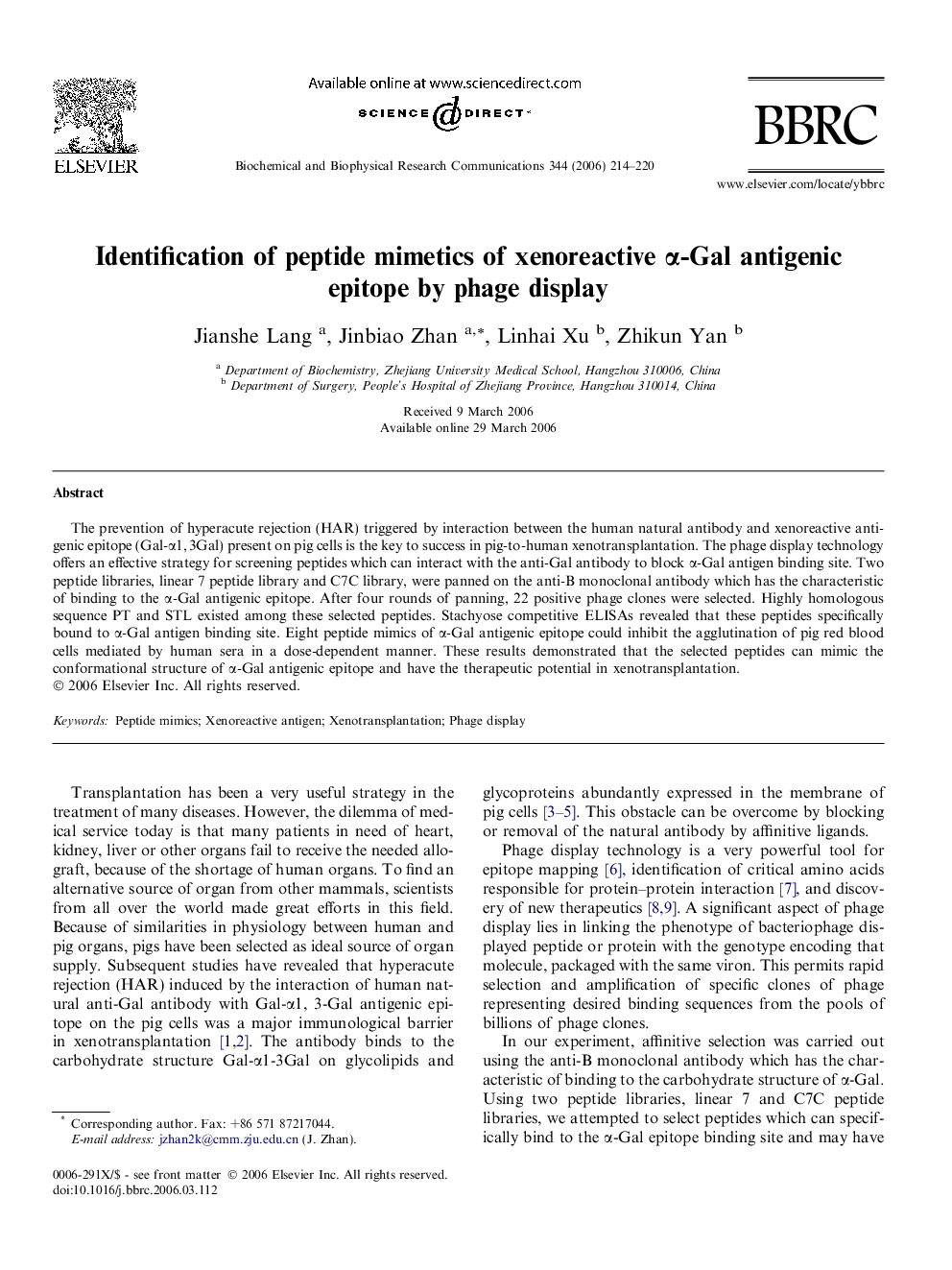| Article ID | Journal | Published Year | Pages | File Type |
|---|---|---|---|---|
| 1941182 | Biochemical and Biophysical Research Communications | 2006 | 7 Pages |
The prevention of hyperacute rejection (HAR) triggered by interaction between the human natural antibody and xenoreactive antigenic epitope (Gal-α1, 3Gal) present on pig cells is the key to success in pig-to-human xenotransplantation. The phage display technology offers an effective strategy for screening peptides which can interact with the anti-Gal antibody to block α-Gal antigen binding site. Two peptide libraries, linear 7 peptide library and C7C library, were panned on the anti-B monoclonal antibody which has the characteristic of binding to the α-Gal antigenic epitope. After four rounds of panning, 22 positive phage clones were selected. Highly homologous sequence PT and STL existed among these selected peptides. Stachyose competitive ELISAs revealed that these peptides specifically bound to α-Gal antigen binding site. Eight peptide mimics of α-Gal antigenic epitope could inhibit the agglutination of pig red blood cells mediated by human sera in a dose-dependent manner. These results demonstrated that the selected peptides can mimic the conformational structure of α-Gal antigenic epitope and have the therapeutic potential in xenotransplantation.
